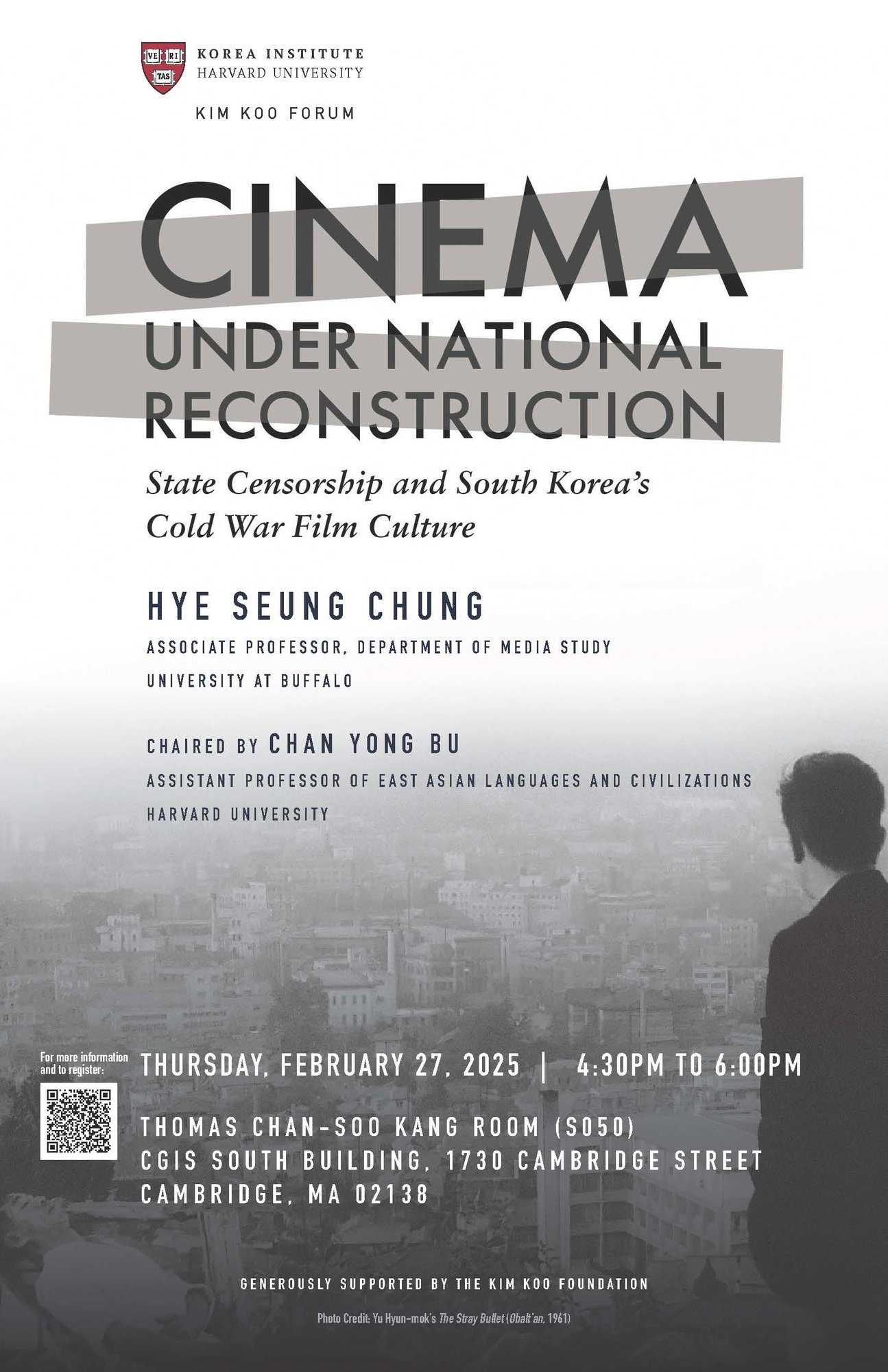time zone will be applied.
Report this post?

Register above to attend this event online.
Dr. Hye Seung Chung is native to Seoul and received a Ph.D. in Film and Television from UCLA. Dr. Chung taught at the University of Michigan, Hamilton College, the University of Hawaii, Oakland University, and Colorado State University before joining UB. She is the author of Hollywood Asian: Philip Ahn and the Politics of Cross-Ethnic Performance (Temple University Press, 2006), Kim Ki-duk (University of Illinois Press, 2012), Hollywood Diplomacy: Film Regulation, Foreign Relations, and East Asian Representations (Rutgers University Press, 2020), and Cinema under National Reconstruction: State Censorship and South Korea’s Cold War Film Culture (Rutgers University Press, 2024). She is also the co-author of Movie Migrations: Transnational Genre Flows and South Korean Cinema (Rutgers University Press, 2015) and Movie Minorities: Transnational Rights Advocacy and South Korean Cinema (Rutgers University Press, 2021). Dr. Chung’s latest book on South Korean film censorship during the Cold War era is based on her Fulbright research in Seoul in 2021-2022. She is currently working on a new monograph project tentatively titled From Okja to Squid Game: The Netflixization of New Korean Media.
Chaired by Chan Yong Bu, Assistant Professor of East Asian Languages and Civilizations, Harvard University
Abstract:
This presentation calls for a revisionist understanding of state film censorship during successive Cold War military regimes in South Korea (1961–1988). Drawing upon primary documents from the Korean Film Archive’s digitized database and framing South Korean film censorship from a transnational perspective, Dr. Hye Seung Chung makes the case that, while political oppression/repression existed inside and outside the film industry during this period, film censorship was not simply a tool for authoritarian dictatorship. Through such case studies as Yu Hyun-mok’s The Stray Bullet (1961), Yi Won-se's A Little Ball Launched by a Dwarf (1981), and Park Jin-pyo's Too Young to Die (2002), the speaker defines censorship as a dialogical process of cultural negotiations wherein the state, the film industry, and the public fight out a battle over the definitions and functions of national cinema. In the context of Cold War Korea, one cannot fully understand or construct film history without reassessing censorship as a productive feedback system where both state regulators and filmmakers played active roles in shaping the new narrative or sentiment of the nation on the big screen.
For further information: click here